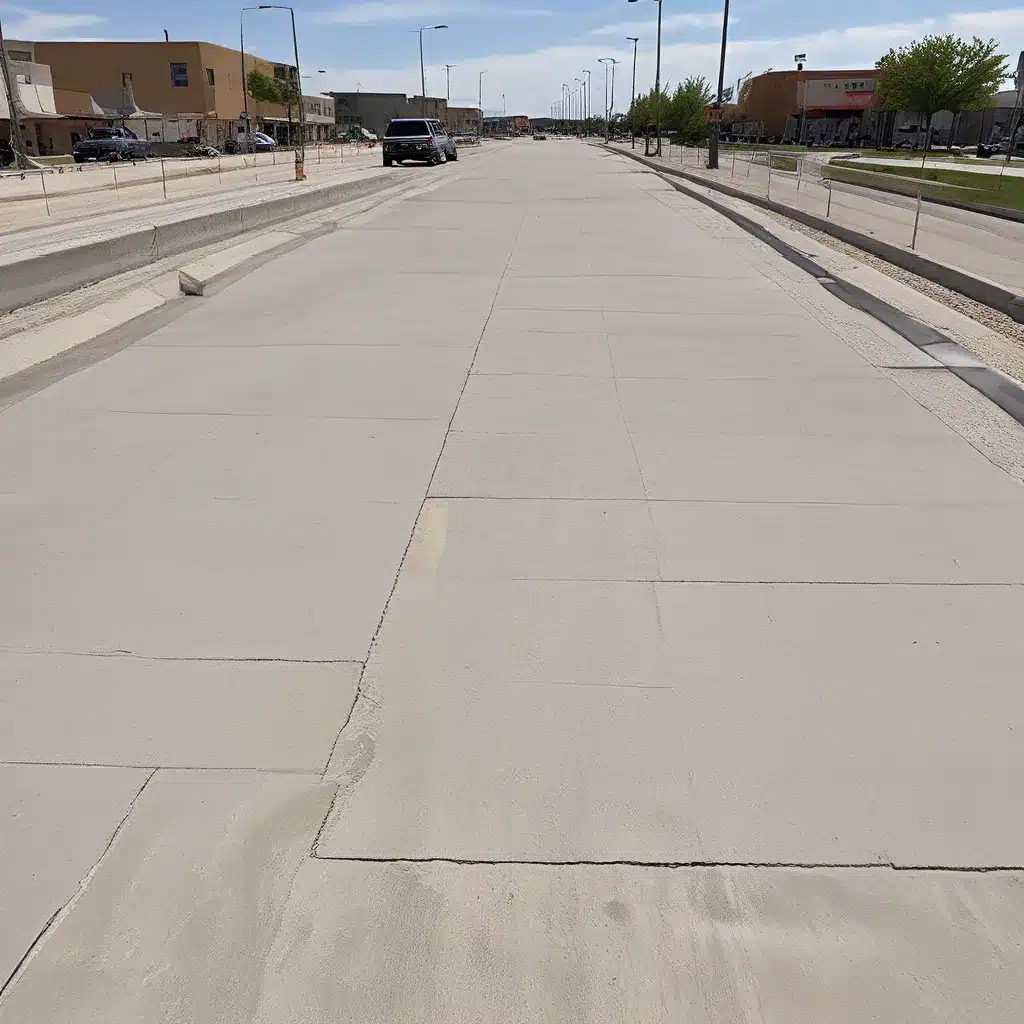
The Importance of Concrete Keyways
When it comes to concrete construction in Kansas City, safety should always be the top priority. One critical aspect that often goes overlooked is the proper installation and maintenance of concrete keyways. These specialized joints play a vital role in the structural integrity and long-term performance of concrete slabs, foundations, and other load-bearing elements.
A concrete keyway is a groove or slot cut into the surface of a concrete slab or joint. This interlocking feature helps transfer shear loads between adjacent concrete sections, preventing them from shifting or separating. Keyways are especially important in applications such as industrial floors, sidewalks, driveways, and commercial parking lots, where heavy loads and dynamic stresses are common.
Proper installation and care of concrete keyways is essential to ensure the safety and durability of these critical components. Inadequate keyway design, poor construction techniques, or neglected maintenance can lead to costly structural failures, tripping hazards, and even vehicle damage.
Keyway Design and Installation Best Practices
When it comes to concrete keyway construction, attention to detail is paramount. Experienced concrete contractors in Kansas City follow a rigorous process to ensure optimal performance and safety:
1. Proper Keyway Dimensioning
The depth and width of the keyway should be proportional to the thickness of the concrete slab or joint. Industry guidelines typically recommend a keyway depth of 1/3 to 1/2 the slab thickness, and a width of 1/3 to 1/2 the depth. This ensures a strong, secure fit between the interlocking concrete sections.
2. Accurate Cutting and Alignment
Keyways must be precisely cut using specialized equipment, such as concrete saws or milling machines. Any irregularities or misalignment can compromise the load-bearing capacity and create potential trip hazards. Skilled technicians carefully measure and mark the cutting lines to ensure consistent, straight keyways.
3. Smooth Finish and Clean Edges
After cutting, the keyway surfaces should be finished to a smooth, uniform texture. Any jagged or uneven edges can lead to concrete chipping, spalling, or cracking over time. Proper cleaning and removal of debris is also crucial to prevent compromising the bond between the keyway and the adjacent concrete.
4. Appropriate Joint Sealants
Depending on the application, the keyway may need to be filled with a flexible joint sealant or caulk. This helps prevent the intrusion of water, debris, and other contaminants that can degrade the concrete and cause premature failure.
Ongoing Keyway Maintenance
Maintaining the integrity of concrete keyways is an essential part of any comprehensive concrete care and preservation program. Regular inspections, timely repairs, and proactive preventive measures can significantly extend the lifespan of these critical structural elements.
Inspection and Monitoring
Routine visual inspections should be conducted to identify any signs of cracking, spalling, deterioration, or displacement in the keyways. Prompt detection of issues allows for timely intervention before they escalate into more significant problems.
Repair and Restoration
When minor damage is observed, it’s important to address it quickly. Skilled technicians can use specialized epoxy resins, polyurethane sealants, or even partial keyway replacement to restore the structural integrity and prevent further deterioration.
Preventive Measures
To mitigate the risk of keyway-related issues, it’s essential to implement proactive maintenance strategies. This may include regular cleaning to remove accumulated dirt, debris, and contaminants, as well as the application of protective coatings or sealants to safeguard the concrete surfaces.
Conclusion: Concrete Keyway Safety and Performance
In the bustling city of Kansas City, where concrete construction is ubiquitous, the importance of properly designed, installed, and maintained concrete keyways cannot be overstated. These seemingly small but critical features play a pivotal role in ensuring the safety, longevity, and performance of concrete structures across residential, commercial, and industrial applications.
By prioritizing best practices in keyway design, installation, and ongoing care, concrete contractors in Kansas City can help their clients avoid the costly consequences of structural failures, tripping hazards, and other hazards. Investing in quality concrete construction and maintenance services is a wise decision that pays dividends in the long run, safeguarding both property and public well-being.

